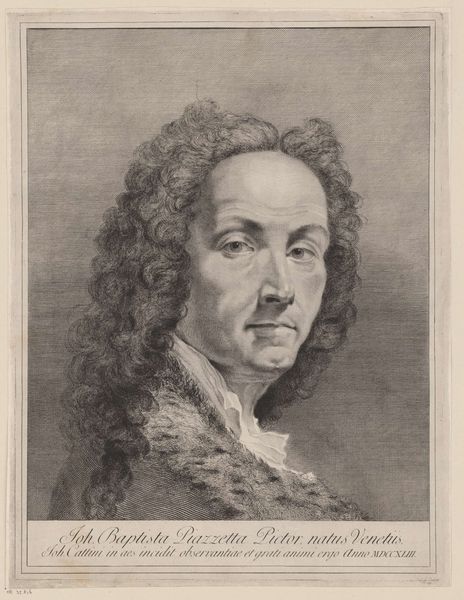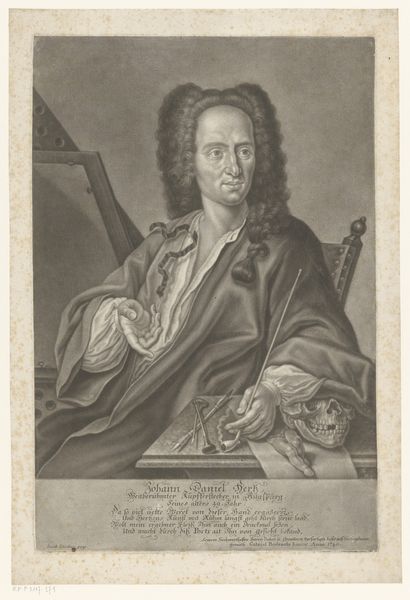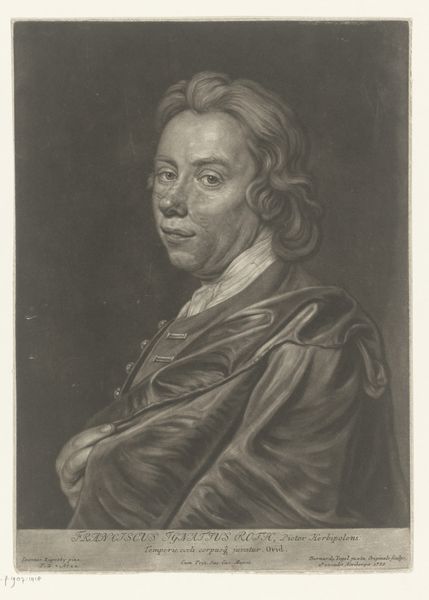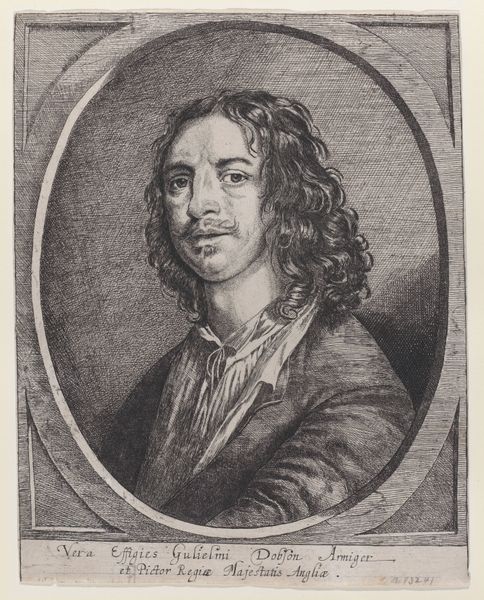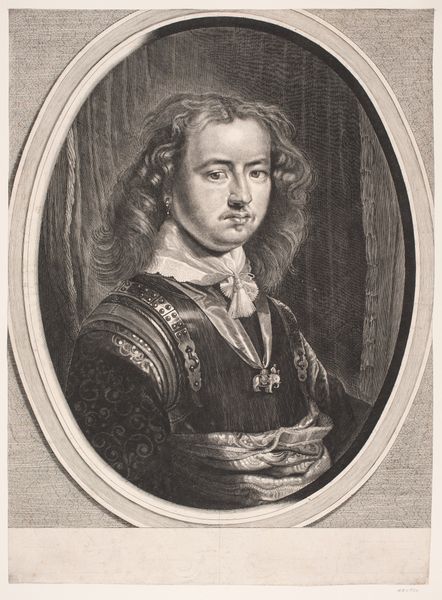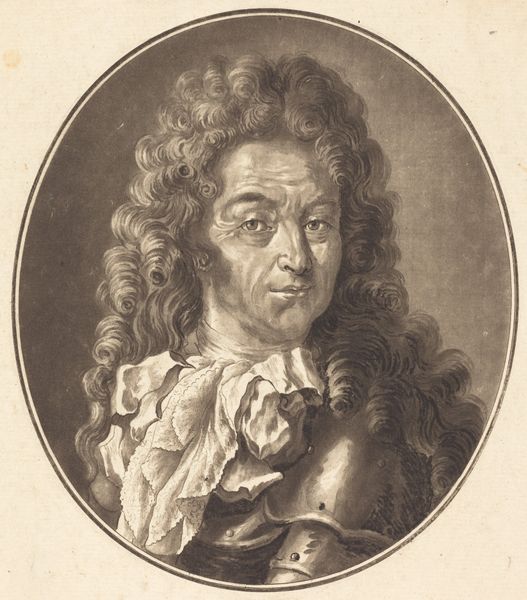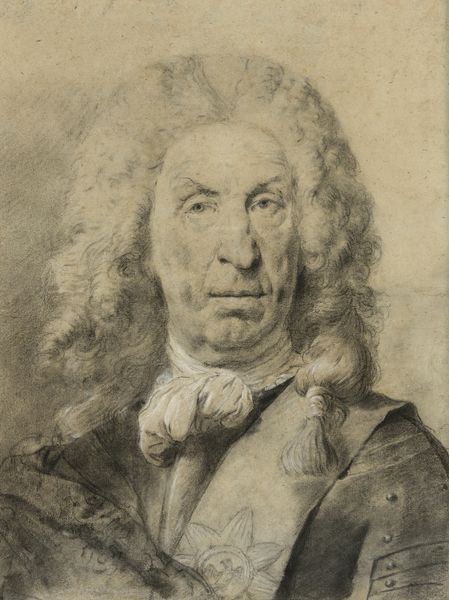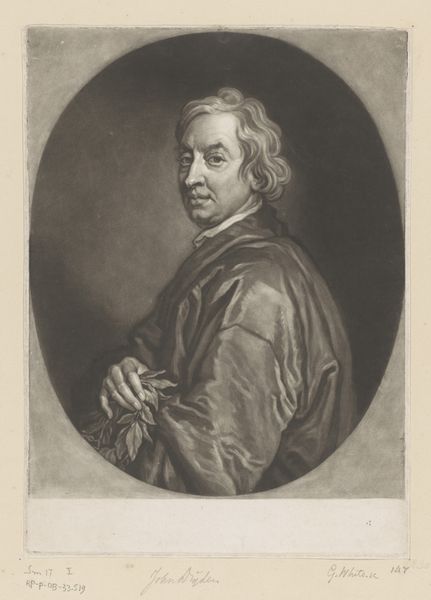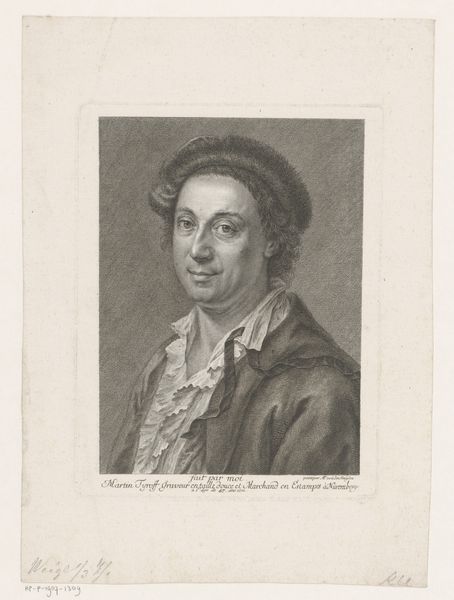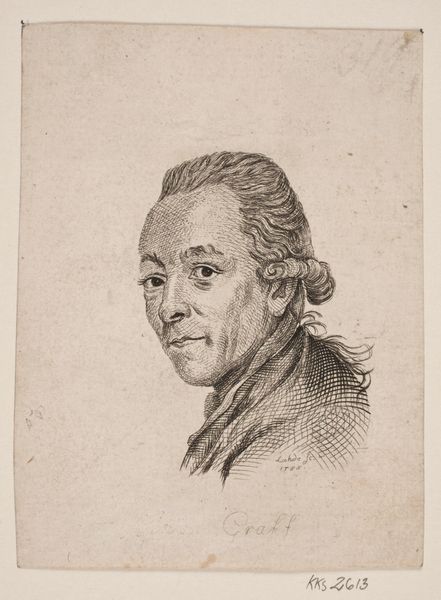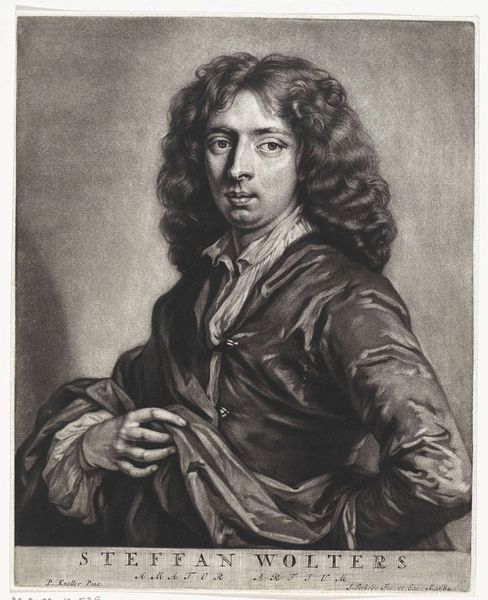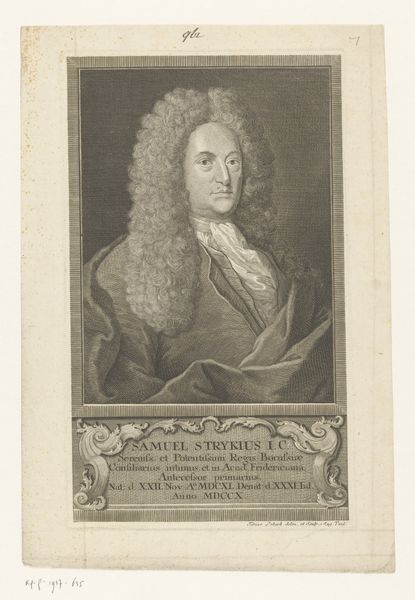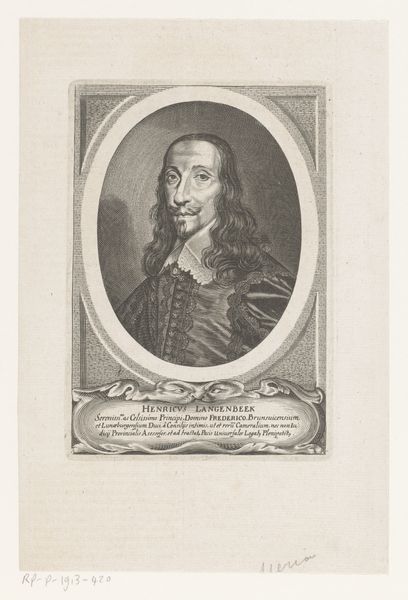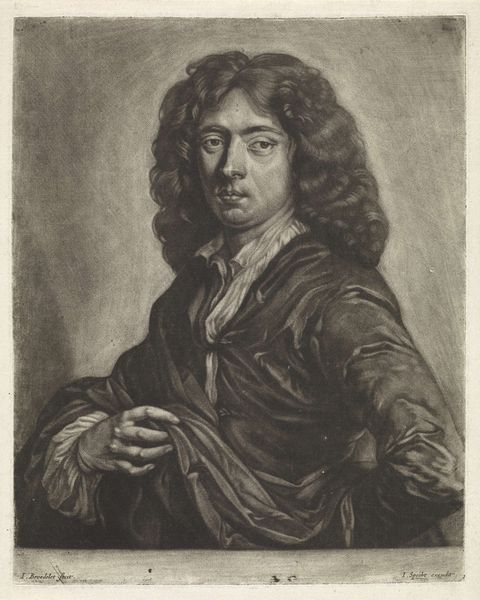
Portrait of Giovanni Battista Piazzetta 1725 - 1754
0:00
0:00
drawing, print
#
portrait
#
drawing
#
baroque
# print
#
caricature
#
charcoal drawing
Dimensions: sheet: 15 x 10 1/2 in. (38.1 x 26.7 cm)
Copyright: Public Domain
Editor: Here we have Johann Gottfried Haid's "Portrait of Giovanni Battista Piazzetta," created sometime between 1725 and 1754. It's a print, giving it this lovely soft, almost charcoal-like texture. There's a sense of quiet dignity about the subject. What strikes you most about it? Curator: I'm drawn to the reproductive nature of the print medium itself. Consider the social context: prints democratized art, making images accessible beyond the elite. The materiality here—the paper, the ink, the copper plate from which it was etched—speaks to the labor involved and the means of disseminating Piazzetta’s image and reputation to a broader consuming audience. It turns the celebrated artist into a commodity. Editor: That's fascinating, the way it both elevates and commodifies the artist. I hadn’t thought about the implications of mass production for artistic prestige back then. Curator: Exactly! And consider the subtle gradations achieved. The process of creating tonal variations on a metal plate—stopping, starting, acid etching—it mirrors the layering inherent in painting, but through an industrial process. Does it challenge the very notion of original authorship, or just make it more available? Editor: It's blurring the lines, isn't it? So, is Haid making a statement about the changing role of the artist in society by choosing printmaking? Curator: Perhaps. Or simply responding to market forces. These prints were part of a network of exchange. Artisans like Haid, commissioned and paid to reproduce likenesses like Piazzetta's, fueled a growing art market and transformed how artistic fame circulated. Each impression is the result of many iterations, labors, markets, all conmingling in that one plane. Editor: That gives me so much to think about! I always considered prints as copies, not thinking of them as an integral part of cultural dissemination, the art world and material consumption itself. Thanks for the fresh view! Curator: My pleasure. Analyzing the artwork through a material lens exposes hidden dynamics behind production, consumption, and artistry that transcend mere aesthetic value.
Comments
No comments
Be the first to comment and join the conversation on the ultimate creative platform.
